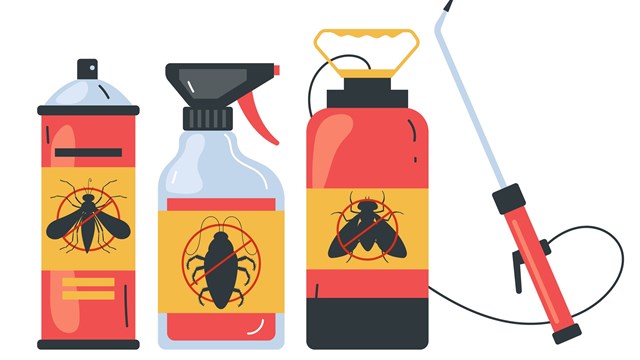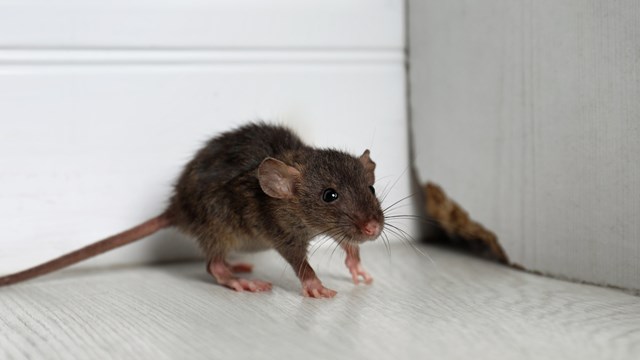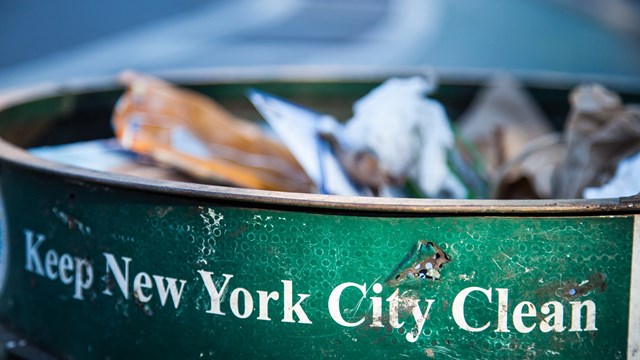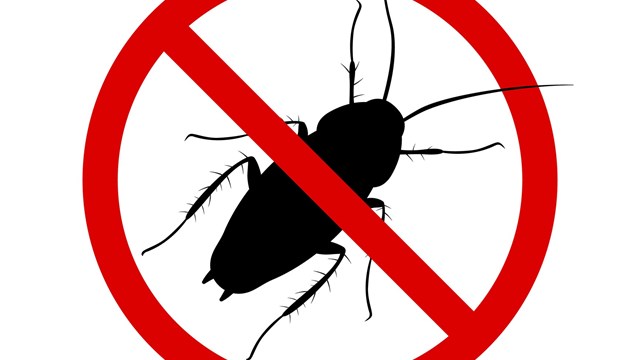
Few people in the New York City area—be they renters, buyers, or even just commuters—have managed to navigate the daily grind without coming eye-to-eye or face-to-face with pests such as ants, bees, mice, rats or roaches. Stumbling upon them is so routine that many of us have developed a degree of immunity, only turning our heads at something particularly obscene. The Cooperator reached out to several professionals from various walks of condominium and co-op life to hear their horror stories, and learn how this scourge could have been avoided.
Rats
"We were on a job and opened up a compactor room. It was like National Geographic down there," recalls Lloyd Gartin, the owner of Long Island-based Select Exterminating Co. "At least 50 to 100 rats running wild. We'd turned up an old, large storage area which no one really knew existed. Rats were running from the street where they stored the garbage into the said storage space, and from there into the building. We stopped counting after we killed about 200. People tend to view pest control as a one-off $100 or $200 expense, but these large infestations can run into the thousands. The only way to resolve them is by putting detailed man hours into baiting, mass trapping and closing holes."
And when it comes to the rat's cuddlier but by-no-means health-conscious brethren, the mouse, some people have expressed an unusual affection for the little fellas. “I have had people say to me, literally, 'Don't kill the mice, just the bugs. The mice don't bother me,'” relays Jeffrey Dworkin, the president of Ecology Exterminating Service Corp, based in Brooklyn. “We ask them if they're sure they want to do this, but should they insist, we do our job. We try to calmly advise everyone to do the right thing; that extermination is no substitute for sanitation. You need to clean up your dirty dishes, take out your garbage, etc. But some people just don't listen.”
Roaches
"I represented a co-op where I got a call from a shareholder saying that she'd been seeing a lot of roaches," says Steve Birbach, president and CEO of Vanderbilt Property Management, LLC in Glenwood Landing. "Then the person above her calls, then the person next door, so on and so forth. We booked an exterminator and they treated to no avail. The tenants got restless, going to Home Depot, buying all sorts of nonsense. There were threatening calls about how they were going to reach out to newspapers if nothing got done; it was really bad. Just an ugly scene for a few weeks. Eventually, we hired an alternate exterminator, who quickly realized that the garbage chutes weren't being cleaned frequently enough. On top of that, tenants were throwing raw garbage down the chutes. If you're cleaning every quarter, that's just not enough if people aren't even putting trash in plastic bags. After six months of cleaning more frequently and disinfecting, we got back on schedule. But one woman had actually moved into a hotel because she couldn't take it anymore. She was literally sharing her bed with the roaches."
Occasionally, an infestation will get bad enough such that an owner inversely becomes disinclined to report it due to embarrassment. “We once walked into a kitchen, and there was double-sided Scotch tape around the room with roaches stuck to it,” relates Dworkin. “It was gross. And people were sitting down eating cereal in this kitchen adorned with immobilized bugs. It was crazy.”
Bed Bugs
While rats and roaches are all well and bad, they pale in comparison to the disgusting menace known as bed bugs. "If bed bug eggs hatch in a hallway ceiling or some such, and they sense the warmth of a human body below, they'll drop down on it without hesitation," says Ralph H. Maestre, a board-certified entomologist and technical director at Magic Exterminating, with offices in the five boroughs and Long Island.
"Several years ago, I walked into a very infested apartment for the purpose of collecting bed bugs, which would eventually end up being studied at the University of Kentucky as ‘NY Strain #1.’ I was the last to enter, and the only one whose protective suit was inconveniently unequipped with a hood. At one point, I looked at my chest and saw a nymph crawling around. By then it was too late to vacate the apartment, so I stuck it out, collected what we needed, went outside, ripped off the suit and doused myself with various treatments to ensure that I wouldn't take any bed bugs home."
Bed bugs bring with them an undeserved stigma as if, should you have an infestation, it somehow illustrates that you're unclean, a veritable Pigpen from the Peanuts comic strips. People can be concerned with alerting their neighbors that they have an issue, despite wider awareness contributing to the greater good of the property. “People who have had bed bugs will say 'Don't tell my neighbors; I've only been bitten maybe four times,'” says Dworkin. “Then they'll actually go to show me the bites, and I don't want to see that, because they reveal... tough areas at which I should not be looking. I will take their word for it, you know what I mean?”
Oh My
While the above addresses the more common plagues associated with New York City residential living, there are in fact outliers. “We went to one building where a woman explained that she'd just moved in a month ago, and saw a snake crawling around the basement,” Dworkin recalls. “We have an animal-catching tool—sort of a pole with a rope attached to it—and we nabbed the snake and brought it to animal control, as we didn't know if we could kill it or not. This was the first time we had to bring out that tool in maybe three or four years.”
And perhaps the only thing worse than one of these objectively gross things is a cocktail of several gross things, like the one encountered by Michael Manzi, an attorney with the Manhattan-based law firm of Balber Pickard Maldonado & Van Der Tuin P.C. "A co-op was owned by an elderly woman who had a number of cats and, as she had apparently lost some of her mental capacity, an aversion toward both litter boxes and cleaning in general," he relates. "She died in her apartment, and, via New York City law, if someone dies alone in that manner, once the body is removed, the apartment is sealed. At that point, certain procedures need to be undertaken before the apartment can be re-entered. They even put a big yellow adhesive label over the door frame that renders it mostly impenetrable. Eventually, when they finally checked all of the required boxes—after some delay and our intervention—police arrive to open the door, and they were bombarded with a swarm of what could only be described as flying roaches. The authorities jumped out and shut the door behind them. We actually had to force the estate to send in a cleaning crew to get rid of not only the infestation, but the residue of the untoward and uncontrolled cat activity."
Go the Extra Mile
In his experience as a licensed real estate broker and property manager with Weber-Farhat Realty Management in New York City, Moises Farhat has seen it all. But at the end of the day, as he puts it, "New York City has a rat problem." If nothing else, take away this insistence that the most seemingly intense precautions are worth taking: "Rats and bed bugs are the hardest problems to resolve. With the latter, everything must be sealed in plastic for 18 months, and, with the former, trash must be kept in sealed containers, and surrounding areas treated."
The lesson here: Don't let a perceived stigma of calling an exterminator or notifying the board to allow these monsters to run amok.
Mike Odenthal is a staff writer for The Cooperator.









Comments
Leave a Comment